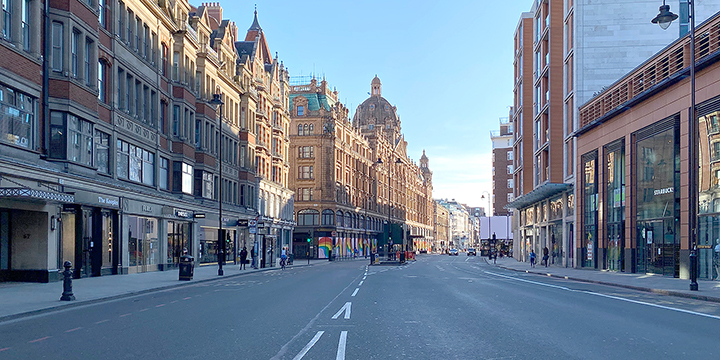3 min read
Secure storage solutions for precious metals
Last week we read of a new investment scandal in Cologne, Germany where investors entrusted an unknown company with 45 million Euros to buy gold and,...
2 min read
 Mark Brookes
:
Apr 15, 2020 5:00:45 PM
Mark Brookes
:
Apr 15, 2020 5:00:45 PM

In many countries around the world, businesses providing non-essential goods and services have either been advised to close or have been ordered to do so by the local authorities.
Consequently, many establishments have been left empty and have become a target for criminals. And those that remain open for the sale of essential supplies are at risk from looters.
Europol, the European Union’s law enforcement agency, has warned of an increase in crime rates during the current pandemic as criminals and criminal organisations quickly adapt their methods to exploit the crisis.
Among the factors Europol quotes as contributing to this change in criminal activity is the “high demand for certain goods, protective gear and pharmaceutical products”.
As a result, commercial premises and medical facilities are expected to be increasingly targeted for organised burglaries.
As well as the risk that criminals are exploiting the crisis, studies indicate that there is a correlation between unemployment and crime. In 2016 an article by VOX, a research-based policy analysis and commentary forum from leading economists, lists evidence from the US, Sweden, France and Germany which “documents significant and modest impacts of unemployment on total and property crimes”.
Nobody can foresee what impact unemployment caused by the current pandemic will have, but the rising number of people being laid-off around the globe during the last weeks is alarming. According to the BBC, more than 16 million people have made unemployment claims in the US during the last weeks of March and first week of April, as restrictions on activity to help contain the virus are forcing most businesses to close and has put about 95% of Americans on some form of lockdown. In the UK, unemployment had risen by almost half a million by the end of March. According to a quick poll by YouGov, the number of people worried that coronavirus will cause long-term unemployment jumped from 26% to 62%. India has already lost more jobs due to coronavirus lockdown than the US during the Great Depression. Daily-wage labourers are bearing the brunt of the lockdown with thousands finding themselves unemployed overnight. Mahesh Vyas, CEO and Director of Centre for the Monitoring of Indian Economy (CMIE), reported an unemployment rate of 23.4% in India in the first week in April.
And during the current lockdown, even Western countries have started to see the emergence of social unrest and the looting of essential goods. The Red Cross has warned of the impact on the West’s urban poor and there have been reports of raids on supermarkets in Italy.
As well as retail being at threat, there is a risk for restaurant and bar owners who have been forced to close up and leave their establishments empty but often with expensive bottles of wine and spirits inside.
Given the heightened risk commercial properties are being exposed to at the moment, one option is to physically protect your most valuable assets by keeping them in a certified safe or a larger secure storage cabinet. You may have invested in alarms and monitoring, but police and other agencies may be delayed in their response, as they prioritize other issues. You can find safes and secure cabinets offering pure burglary protection or which provide dual resistance against both burglary and fire to act as your last line of defence.
For restaurants, there are also secure storage cabinets which have been designed with special bottle holders so that high-value wine can be securely locked away.
Whatever the purpose, safes and cabinets come in a whole range of sizes with a variety of fittings, so it is easy to find something to suit your property in a cost-efficient way.
And when it comes to the level of protection offered by a safe, always check to what grade the safe or cabinet is certified. Requirements differ from region to region and local insurers specify different levels of protection, so always check with your safe storage provider about what is applicable in your country.

3 min read
Last week we read of a new investment scandal in Cologne, Germany where investors entrusted an unknown company with 45 million Euros to buy gold and,...

Is the extinction of the bank branch inevitable? Maybe, but although their numbers have significantly and somewhat rapidly reduced recently, the...

From smartphones and power tools to electric vehicles and warehouse machinery, lithium-ion batteries power today’s technology-driven world, driving...